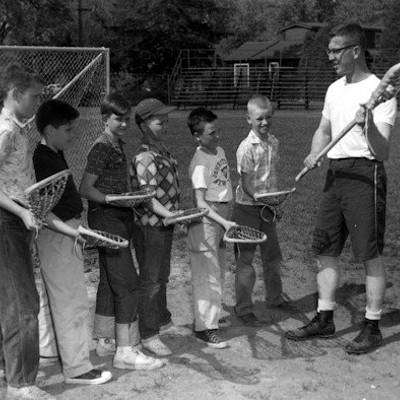[
{
"name": "500x250 Ad",
"insertPoint": "5",
"component": "15667920",
"parentWrapperClass": "",
"requiredCountToDisplay": "1"
}
]
The career of the Spanish director Pedro Almodóvar has followed a generally upward path, beginning with his first international success, Women on the Verge of a Nervous Breakdown, back in 1988 (though made in 1986, his Matador appeared in this country only after the positive reception of Women). He has produced a steady flow of pictures since then, most of which have pleased both critics and audiences. Although he has benefited from the usual warm welcome many American reviewers automatically provide for foreign films, whatever their quality, his movies frequently deserve at least some of the praise they receive.
Almodóvar's now considerable body of work displays a certain consistency: many of his films employ a familiar troupe of actors (one of whom, Antonio Banderas, has become an American star), deal with some similar subjects and themes, and demonstrate some persistent, recognizable stylistic and tonal devices. In other words, the director has attained the currently fashionable and highly desirable status of a noted contemporary auteur.
Although exhibiting some of the familiar Almodóvar touches, Talk to Her, his newest and most lavishly praised film (it's been awarded one of those notoriously tarnished Golden Globes and seems headed for an Academy Award nomination), differs noticeably from such works as, say, Tie Me Up, Tie Me Down!; High Heels; and Kika. While it exhibits some of the typical Almodóvar penchant for quirkiness, along with the sometimes comically straightforward presentation of decidedly unfunny material, Talk to Her moves toward a deeper, less ironic engagement with its subjects than his previous movies. Despite one shocking, perhaps inadvertently self-revelatory sequence, the director also abandons his customary outrageous treatment of sex and sexuality.
Two unusual, parallel relationships structure the movie --- the friendship between two men: Marco (Dario Grandinetti), a journalist and writer of travel books, and Benigno (Javier Cámara), a male nurse, each of whom love a comatose woman. The two meet in a hospital, where Benigno tenderly cares for a young ballet student named Alicia (Leonor Watling), who was injured in an accident. Marco visits his girlfriend, Lydia (Rosario Flores), a bullfighter who's been gored in the ring. Both women exist in what the doctors diagnose as a persistent vegetative state, without hope of recovery, but Benigno believes that some miracle will reawaken Alicia, the silent, unresponding listener to the daily accounts of his life. He encourages Marco to converse with Lydia --- hence the title --- and arranges "meetings" between the two unconscious women, which he orchestrates as if they were conversing with each other.
Almodóvar creates a somewhat unusual structure for the film, moving back and forth through various periods in the two men's relationships with the women, using traditional flashbacks for memories, telling stories within stories, showing a version of chapter titles for segments of the narrative. Although he threads his characteristic sense of absurdity and his inclination toward bizarre comedy throughout the film, he also reveals a greater depth of emotional commitment and a touch of simplicity and sweetness in his characters and their actions. The matter-of-fact authenticity of the settings and the steadfastly unspectacular handling of some distressing subjects --- the comatose women, rape, imprisonment, suicide --- allow the director to express that emotion with some credibility, while avoiding the tempting path of an easy sentimentality.
Benigno, in particular, the innocent lover of the lovely, paralyzed ballerina, behaves with such humanity and selfless goodness that he inspires some sympathy and affection even in the commission of a most ambiguous criminal act. When he recounts the plot of a silent science fiction film to Alicia, which Almodóvar shows in black and white during his narration, Benigno's interpretation of a remarkably obscene sequence makes the whole business seem positively pure and natural. (The sequence, by the way, represents the absolutely logical outcome of a famous American movie --- a conclusion Hollywood never dared to consider).
Despite its unusual situations and characters, Talk to Her also suggests that the director can exercise a greater restraint than he has displayed in the past. In addition to the refreshing ordinariness of Javier Cámara's performance, Dario Grandinetti plays almost passively throughout the film, conveying his emotional and mental states through the most minimal gestures, expressions, and intonations. Even Geraldine Chaplin, of all people, apparently speaking fluent Spanish, plays her part as Alicia's ballet instructor with a no-nonsense power, and utters some of the most provocative lines in the picture.
The director frames Talk to Her between two dance performances, both original and fascinating, which introduce some of the characters and themes. In keeping with its mixture of the distressing and the hopeful, the first shows a man assisting two blind and helpless women. The second consists of what seems a charming courtship dance. One is bleak, bare, and tragic; the other sparkles with light, color, and whimsy. In the best sense of both dance and cinema, the performances communicate, entirely without words, the mixed feelings and ambiguous essence of the film.
Talk to Her, starring Dario Grandinetti, Javier Cámara, Rosario Flores, Leonor Watling, Geraldine Chaplin; written and directed by Pedro Almodóvar. Little Theatres.
You can hear George and his movie reviews on WXXI-FM 91.5 Fridays at 7:15 a.m., rerun on Saturdays at 11:15 a.m.
Latest in Movie Reviews
More by George Grella
-

Film Review: "Cake"
Jan 26, 2015 -

Film Review: "American Sniper"
Jan 19, 2015 -

Film Review: "Inherent Vice"
Jan 12, 2015 - More »






